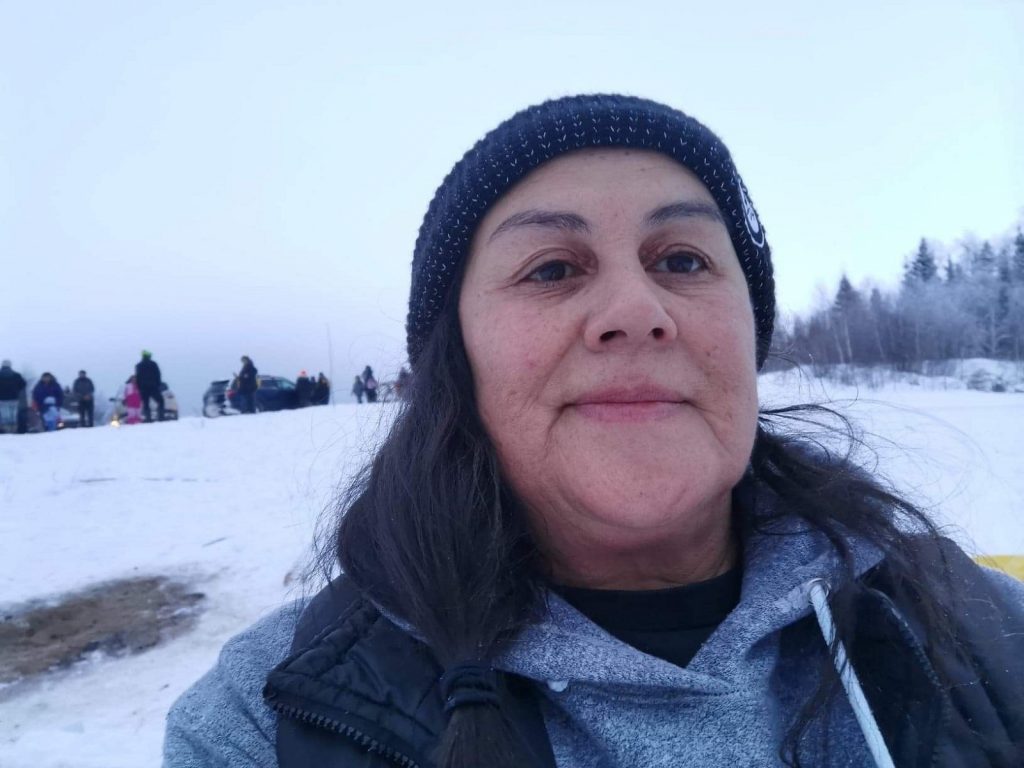Improving Cancer Screening Access in Northern Communities
Published Monday, October 6, 2025

Connie Gray-McKay, former Chief of Mishkeegogamang First Nation and a breast cancer survivor.
In 2012, Connie Gray-McKay received a letter from the Ontario Breast Screening Program (OBSP) inviting her to book a mammogram. At the time, she was a busy mother and Chief of Mishkeegogamang First Nation, and admits that personal health appointments were not her first priority.
“When that first letter came, and the ones after it, I just put them aside,” Connie recalls. “There were always other responsibilities. Getting to a screening appointment outside the community wasn't easy, and it didn't feel urgent at the time.”
Life moved quickly, until five years later in June 2017. Sitting on her couch, reviewing the Chief nomination forms and debating whether to run for re-election, Connie felt a lump.
“Within a couple of days I was sent to Sioux Lookout Meno Ya Win Health Centre for a mammogram, followed by a biopsy a week later,” she says. By early July, she was diagnosed with breast cancer.
Connie's story reflects a broader reality in Northwestern Ontario, where access to cancer screening can be challenging. For many remote, rural and Indigenous communities, travel, scheduling, and limited availability of healthcare providers often stand in the way of timely appointments.
To help bridge those gaps, the Screen for Life Coach (Coach), a mobile cancer screening bus, hits the road each year for a seven-month regional tour. The Coach delivers breast, cervical, and colon cancer screening services directly to communities in Northwestern Ontario where these services may otherwise be limited or non-existent.
“Improving access to cancer screening is our goal. By bringing services closer to home and providing culturally safe care, it's easier for individuals to prioritize their health and detect cancer early, when treatment works best,” explains Tarja Heiskanen, Manager of Prevention and Screening Clinical Services at Thunder Bay Regional Health Sciences Centre. “This travel season, we're proud to say we're on-track to screen 14 Indigenous communities in Northwestern Ontario.”
Recent updates to Ontario's screening programs are further expanding access and opportunity. “Last fall, the Ontario Breast Screening Program lowered the recommended starting age for breast screening mammograms from 50 to 40, opening the program to many more people who could benefit from early detection,” says Heiskanen.
Colon cancer screening is also becoming more accessible through the FIT Kits-on-Hand initiative. Building on its success in the Sioux Lookout area, the program launched in the Treaty #3 territory in July 2025. Now, eligible individuals in participating communities can pick up a Fecal Immunochemical Test (FIT) from their local nursing station rather than waiting for it to arrive by mail.
“FITs are convenient and can be completed entirely at home,” Heiskanen adds. “This means people can take the test without leaving their community. Time is of the essence when it comes to screening, so reducing wait time is very important when considering potential outcomes.”
Stories like Connie Gray-McKay's highlight why timely access to screening matters. For Connie, her breast cancer diagnosis marked a turning point. She chose not to run for Chief again so she could focus on her health and family. Now cancer-free, Connie uses her voice to encourage other Indigenous people to put screening first, even when life feels busy or travel feels overwhelming.
“In our communities, we are used to putting others first: our families, our Elders, our children. But screening is how we take care of ourselves so that we can stay present for our loved ones,” she says.
This Breast Cancer Awareness Month, Connie's message is simple but powerful: “Don't wait. Cancer doesn't care how busy you are. Screening gives us a fighting chance, and our people deserve that chance.”
For information on cancer screening in Northwestern Ontario, as well as the Coach's current regional and Thunder Bay schedules, visit tbrhsc.net/cancerscreening. Planning for the Coach's 2026 travel season is currently underway.
Who should get screened
In Ontario, the cancer screening guidelines for average risk individuals are as follows:
- Breast cancer: Women, Two-Spirit, trans and non-binary people between the ages of 40 and 74 should have a breast screening mammogram every two years.
- Cervical cancer: Anyone with a cervix between 25 and 69 years, who has ever been sexually active, should have a cervical screening test every five years.
- Colon cancer: Individuals, between the ages of 50 and 74, who have no first-degree family history of colon cancer, should complete a take-home colon screening kit every two years.
Cancer screening is available at no cost for those with a valid OHIP card. A doctor referral is not required for average-risk individuals within the recommended screening age range.
Article by Jasmin Fisher, Cancer Promotion and Communications Planner